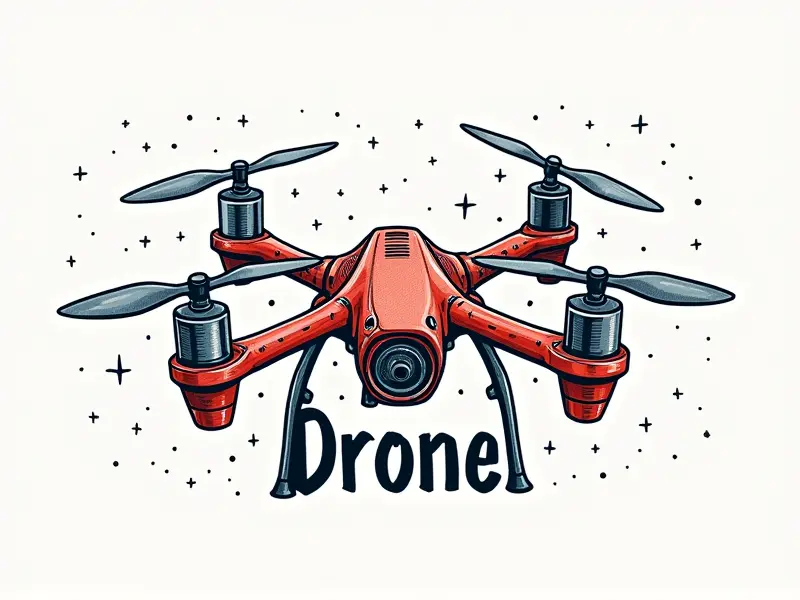Importance of GPS in FPV

Importance of GPS in FPV
First Person View (FPV)drone racing has become a thrilling and competitive sport that demands precision, agility, and control. As the technology behind FPV drones continues to evolve, one crucial component stands out as essential for pilots: GPS.
Why Every FPV Pilot Needs GPS
Incorporating GPS into your FPV setup can significantly enhance your flying experience in several ways:
- Precision and Accuracy: GPS provides accurate location data, allowing pilots to navigate complex courses with ease.
- Safety: Knowing your drone's exact position helps prevent crashes and ensures safe operation.
- Autonomy: Advanced features like waypoint navigation can be programmed into the flight plan for automated missions.
How GPS Enhances FPV Racing Precision
The integration of GPS in FPV racing offers numerous advantages that elevate performance and competitiveness:
- Course Navigation: Pilots can precisely follow predefined routes, ensuring they stay on track during races.
- Speed Control: Accurate speed management is crucial for maintaining optimal race pace without overshooting or falling behind.
- Real-Time Data: GPS provides real-time location updates, enabling pilots to make split-second decisions based on their position relative to the course and other racers.
Maximizing FPV Flight Control with GPS
To fully leverage GPS in your FPV flights, consider these strategies:
- Waypoint Navigation: Program specific waypoints into your drone's flight plan to guide it through complex courses.
- Altitude Management: Use GPS altitude data to maintain consistent height above ground level (AGL), crucial for avoiding obstacles and staying within race boundaries.
- Return-to-Home Functionality: Enable the return-to-home feature to automatically guide your drone back to its starting point if signal is lost or battery runs low.
Unlocking FPV Potential Through GPS Integration
The seamless integration of GPS into modern FPVs opens up new possibilities for pilots:
- Advanced Autopilot Systems: Utilize sophisticated autopilot features that rely on GPS data to perform complex maneuvers autonomously.
- Enhanced Data Logging: Record detailed flight logs with GPS coordinates, altitude, and speed for post-flight analysis and improvement.
- Remote Monitoring: Monitor your drone's position in real-time from a remote location using GPS tracking software.
GPS: The Unsung Hero of FPV Racing
While many focus on the visual aspects of FPV racing, GPS plays an indispensable role behind the scenes. It ensures that pilots can:
- Navigate with Confidence: Relying on accurate position data allows for confident navigation through challenging courses.
- Compete Fairly: GPS helps maintain a level playing field by ensuring all racers follow the same course and rules.
- Increase Safety: Knowing your drone's exact location reduces the risk of collisions with obstacles or other drones.
Navigating Complex FPV Courses Using GPS
GPS is invaluable when flying through intricate courses. Here’s how it helps:
- Pre-Flight Planning: Use GPS data to map out the course and identify key points of interest.
- In-Flight Adjustments: Make real-time adjustments based on your current position relative to the race track.
- Post-Race Analysis: Review flight logs with GPS coordinates to pinpoint areas for improvement in future races.
Boost Your FPV Skills with GPS Technology
To enhance your FPV skills, consider these tips:
- Leverage GPS Data: Use real-time and logged GPS data to refine your flying techniques and strategies.
- Practice Autopilot Features: Experiment with autopilot functions that rely on GPS for automated flight control.
- Stay Informed: Keep up-to-date with the latest advancements in GPS technology and how they can benefit FPV racing.
Essential Guide to GPS in FPV Drone Racing
This comprehensive guide covers everything you need to know about integrating GPS into your FPV setup:
- Selecting the Right GPS Module: Choose a module that meets your specific needs and budget.
- Installation and Configuration: Properly install and configure your GPS module for optimal performance.
- Troubleshooting Common Issues: Learn how to address common problems such as signal interference or inaccurate readings.
Maximizing FPV Experience Through GPS Utilization
To get the most out of your FPV experience, consider these additional tips:
- Integrate with Other Sensors: Combine GPS data with other sensors like accelerometers and gyroscopes for enhanced flight control.
- Customize Flight Profiles: Create custom profiles that optimize GPS settings based on the specific demands of different courses or missions.
- Participate in Community Forums: Engage with other FPV enthusiasts to share insights and learn new techniques for utilizing GPS effectively.
Mastering FPV Racing Through GPS Utilization
To master the art of FPV racing, focus on these key areas:
- Understanding GPS Algorithms: Gain a deeper understanding of how GPS algorithms work to improve your ability to interpret and utilize data.
- Advanced Course Design: Use GPS data to design courses that challenge pilots while ensuring safety and fairness.
- Ongoing Skill Development: Continuously refine your skills through practice, analysis, and feedback from experienced FPV racers.
The Role of GPS in Modern FPVs
In the rapidly evolving world of FPVs, GPS has become an integral part of modern drone technology. Its importance cannot be overstated:
- Enhanced Safety and Reliability: GPS ensures that drones can operate safely and reliably even in challenging environments.
- Innovative Features: New features such as automated landing, precision navigation, and real-time tracking are made possible by GPS technology.
- Fostering Community Growth: The use of GPS fosters a sense of community among FPV enthusiasts who share knowledge and experiences.
In conclusion, GPS is not just an accessory but a fundamental component in the world of FPVs. Its impact on safety, performance, and innovation cannot be underestimated. As technology continues to advance, the role of GPS will only become more significant in shaping the future of FPV racing.

